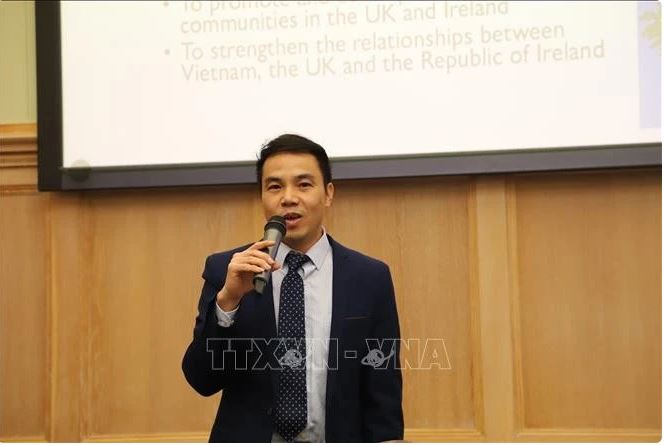With many positive new points, Resolution 57-NQ/TW of the Politburo on breakthroughs in science, technology, innovation, and national digital transformation reflects the Party and State's sound policy and determination, making science and technology a driving force for national development, according to a Vietnamese expert working in the UK.
Prof. Dr. Nguyen Xuan Huan, President of the Vietnam Intellectual Society in the UK and Ireland (VIS), said that accepting risks in scientific research and not holding researchers accountable for economic losses in scientific experiments is a positive new aspect of this resolution, helping relieve psychological pressure on scientists, allowing them to focus on research and fully dedicate their creativity.
Huan praised the determination to remove all barriers, reform financial management mechanisms in scientific tasks, simplify administrative procedures, and grant autonomy in the use of research and technology development funds.
A breakthrough in addressing obstacles related to administrative procedures and disbursement mechanisms for scientific research projects plays a decisive role in promoting research and innovation activities, he noted.
Assessing the goals and vision set out in Resolution 57, the expert said that the objective of bringing Vietnam into the leading group in Southeast Asia in artificial intelligence (AI) and digital technology in the next five years is quite ambitious. However, he supported setting high targets in line with the spirit of the resolution, and embracing risks and venture investment in scientific research, and emphasised the importance of unity and consensus in implementation.
Regarding potential fields for development, Huan said that Vietnam has strengths in fundamental science and informatics. Therefore, besides sectors like semiconductors and AI, Vietnam can achieve breakthroughs by investing in emerging fields such as quantum computing, a sector well-suited to the country’s strength in basic research. Additionally, medicine and renewable energy are also promising fields that could see major advancements with proper investment.
He proposed the country issue specific policies and mechanisms and develop a national programme to encourage collaboration between universities and businesses for the commercialisation of research results; and issue policies to incentivise capable private enterprises to participate in scientific research projects.
Discussing solutions to make the most of the intellectual resources of the overseas Vietnamese scientist community, the professor stated that Vietnamese intellectuals abroad are always eager to contribute to the homeland. He said that specific incentive policies and streamlined procedures are needed to enable them to effectively participate in the country's development efforts.
Huan has been teaching and conducting research at Middlesex University since 2016 and is currently the Head of the 5G/6G and IoT (Internet of Things) Technology Research Group. He also serves as the Director of the London Digital Twin Research Centre, one of the first centres in the UK dedicated to this emerging field of digital transformation./.



















